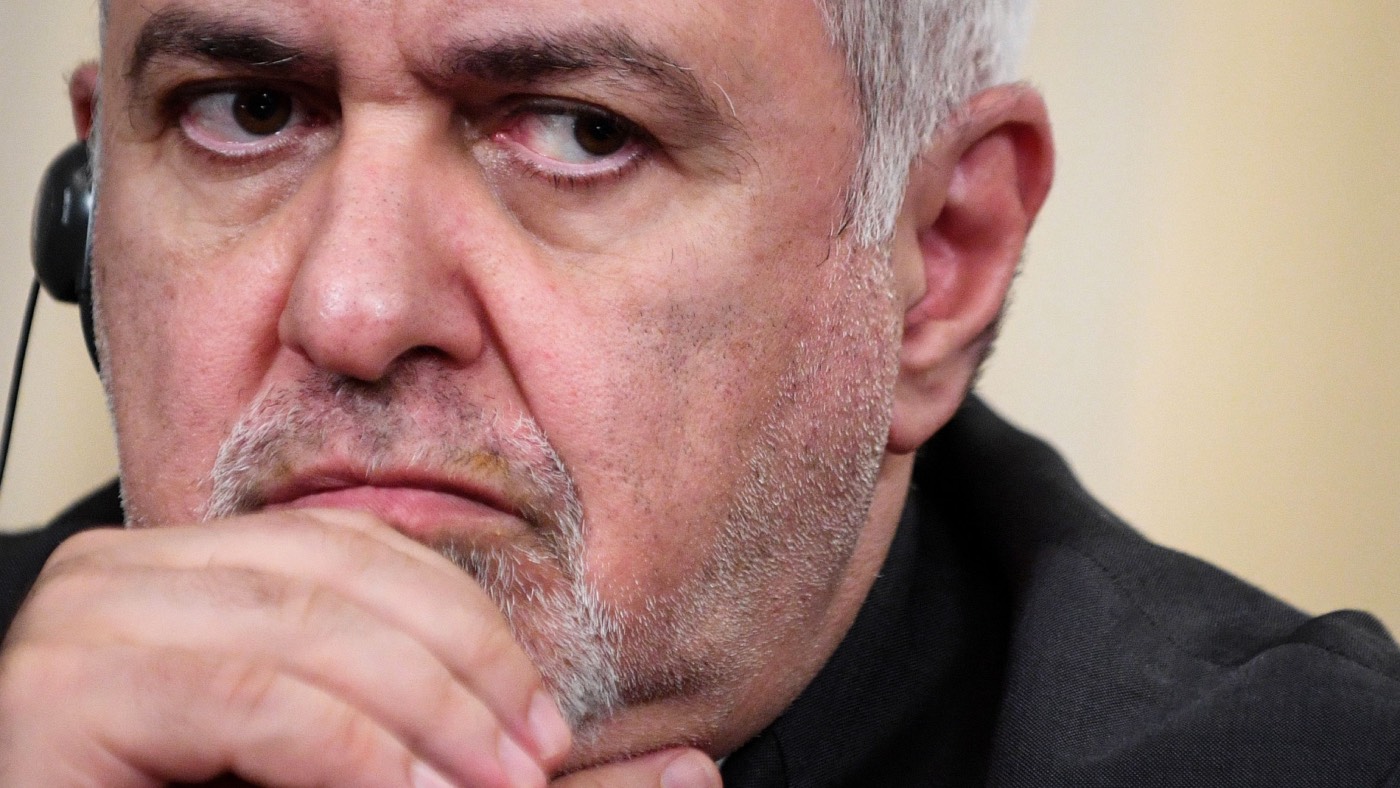Iran denies Trump claim that it is planning Iraq attacks
Tehran says it ‘starts no wars, but teaches lessons to those who do’

A free daily email with the biggest news stories of the day – and the best features from TheWeek.com
You are now subscribed
Your newsletter sign-up was successful
Iran has denied Donald Trump’s claim that its proxies are planning a “sneak attack” on US bases in Iraq.
The US president had claimed on Wednesday that “upon information and belief, Iran or its proxies are planning a sneak attack on US troops and/or assets in Iraq”. Writing on Twitter, the president added: “If this happens, Iran will pay a very heavy price, indeed!”
Al Jazeera quotes a US official claiming that the potential attack was expected to be more menacing than previous rocket assaults, though The Guardian notes that it is not immediately clear what intelligence Trump had obtained to prompt his public statement.
The Week
Escape your echo chamber. Get the facts behind the news, plus analysis from multiple perspectives.

Sign up for The Week's Free Newsletters
From our morning news briefing to a weekly Good News Newsletter, get the best of The Week delivered directly to your inbox.
From our morning news briefing to a weekly Good News Newsletter, get the best of The Week delivered directly to your inbox.
Tehran has responded to Trump’s claim by saying it only ever acts in self-defence and has no proxies in Iraq, only allies.
The claim prompted the Iranian foreign minister, Javad Zarif, to hit back, tweeting: “Don’t be mislead [sic] by usual warmongers... Iran has FRIENDS: No one can have MILLIONS of proxies. Unlike the US which surreptitiously lies, cheats & assassinates.”
In a warning to Washington, Zarif added: “Iran starts no wars, but teaches lessons to those who do.”
–––––––––––––––––––––––––––––––For a round-up of the most important stories from around the world - and a concise, refreshing and balanced take on the week’s news agenda - try The Week magazine. Start your trial subscription today –––––––––––––––––––––––––––––––
A free daily email with the biggest news stories of the day – and the best features from TheWeek.com
CBS News says it was among the most charged rhetorical exchanges since the US strike in January on Iranian general Qassim Soleimani.
The assassination of Soleimani, described as “one of biggest developments in the Middle East for decades” by experts, set up a tense stand-off between the two countries.
This culminated following a retaliatory strike in early January, in which Iran launched more than a dozen missiles at US and coalition military sites in Iraq.
The Iranian army chief of staff, Mohammad Bagheri, has stated that more recent attacks on US bases in Iraq were nothing to do with Tehran, but simply “a natural response by the Iraqi people”.
The latest war of words comes as Trump is under growing domestic pressure to relax sanctions on Iran during the coronavirus outbreak.
The Guardian reports that senior Democrats in Congress, the former deputy national security adviser Ben Rhodes, and outlets such as The New York Times and the Washington Post, have all joined the chorus calling for a humanitarian response to the pandemic.
The latest Iranian health ministry figures showed the total number infected by coronavirus had reached 50,469, with the number of deaths at 3,160.
Early in March, The New York Times reported that satellite images of mass graves in the city of Qom suggest Iran’s coronavirus epidemic is even more serious than the authorities are admitting.
-
 Key Bangladesh election returns old guard to power
Key Bangladesh election returns old guard to powerSpeed Read The Bangladesh Nationalist Party claimed a decisive victory
-
 Judge blocks Hegseth from punishing Kelly over video
Judge blocks Hegseth from punishing Kelly over videoSpeed Read Defense Secretary Pete Hegseth pushed for the senator to be demoted over a video in which he reminds military officials they should refuse illegal orders
-
 Trump’s EPA kills legal basis for federal climate policy
Trump’s EPA kills legal basis for federal climate policySpeed Read The government’s authority to regulate several planet-warming pollutants has been repealed
-
 Trump’s EPA kills legal basis for federal climate policy
Trump’s EPA kills legal basis for federal climate policySpeed Read The government’s authority to regulate several planet-warming pollutants has been repealed
-
 House votes to end Trump’s Canada tariffs
House votes to end Trump’s Canada tariffsSpeed Read Six Republicans joined with Democrats to repeal the president’s tariffs
-
 Bondi, Democrats clash over Epstein in hearing
Bondi, Democrats clash over Epstein in hearingSpeed Read Attorney General Pam Bondi ignored survivors of convicted sex offender Jeffrey Epstein and demanded that Democrats apologize to Trump
-
 How corrupt is the UK?
How corrupt is the UK?The Explainer Decline in standards ‘risks becoming a defining feature of our political culture’ as Britain falls to lowest ever score on global index
-
 ‘The mark’s significance is psychological, if that’
‘The mark’s significance is psychological, if that’Instant Opinion Opinion, comment and editorials of the day
-
 Judge blocks Trump suit for Michigan voter rolls
Judge blocks Trump suit for Michigan voter rollsSpeed Read A Trump-appointed federal judge rejected the administration’s demand for voters’ personal data
-
 US to send 200 troops to Nigeria to train army
US to send 200 troops to Nigeria to train armySpeed Read Trump has accused the West African government of failing to protect Christians from terrorist attacks
-
 Grand jury rejects charging 6 Democrats for ‘orders’ video
Grand jury rejects charging 6 Democrats for ‘orders’ videoSpeed Read The jury refused to indict Democratic lawmakers for a video in which they urged military members to resist illegal orders